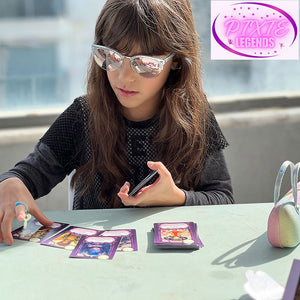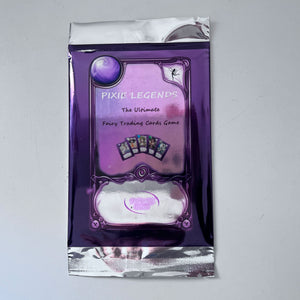Although, it is common for nations to believe in fairy folklore, Ireland has one of the strongest mythical beliefs and traditions. What sets the Irish fairies apart from its popular counter-parts is their physical appearance and supernatural powers such as the ability to fly without wings. While Celts were still pagans, the storytellers told fables of Irish legends consisting of mythical and supernatural beings like fairies. The stories told today are a combination of Celt and Christian folklore.
The Origins of the Irish Fairies
Thousands of years ago, ‘Tribe of Danu’ were a race of people that possessed extraordinary powers. According to legend, this tribe ruled Ireland from the early 19th Century BC to the end of the following century. The Tribe of Danu was eventually defeated by the Milesians, forcing them to flee into the Sidhe underground. Also known as Aos Si, over generations these underground people became smaller. The Celtic tradition has similar beliefs of tiny people forced to hide from invading humans.
Many years ago, the Irish people believed that the Fairy Realm was located in the Hollow Hill, the place where the Tribe of Danu were forced to flee. It is a magical portal between worlds that allows gods and fairies to move between both realms. Till date, Irish people strongly believe in the existence of fairies and respect all things associated with them.
Shrieking Irish Banshee
A banshee is a female spirit in Irish folklore who announces the death of a family member by keening, shrieking, or wailing. Some describe her as having long streaming hair and a grey cloak over a green dress, while some define her as dressed in white with a ghastly expression and red hair. There are some accounts of her standing unnaturally tall, but the majority of stories describe her stature as short, anywhere between one foot and four feet. Her unique height compliments the description of a banshee as an old woman.
Interestingly, the Banshee is rarely sighted. She would sometimes assume the form of a sweet singing virgin of the family who died young, and has been assigned to become the harbinger of impending doom to her mortal family. Irish folklore speaks of a lament being sung by a fairy, or banshee when a family dies or was about to die. Predictor of death, the cry of this spirit is mournful beyond any sound on earth and indicates certain death when heard in the quite of the night. It is often said that the banshee laments the descendants of the pure Milesian of Ireland. Some accounts also argue that each family has its own banshee.
Tiny Irish Leprechaun
Among all the Irish fairies, the leprechaun is the famous of them all. A tiny supernatural being in the Irish folklore, the leprechaun is a solitary Earth fairy. They are usually shown as little bearded men who wear a green coat and hat, and are very mischievous. With time, they have also been depicted as shoe-makers who keep a hidden pot of gold at the end of the rainbow.
Shape-Changing Irish Pooka
The púca (Irish for spirit/ghost), pooka, phouka is a creature of Celtic folklore. Believed to the bringers of both good and bad fortune, they were capable of helping or hindering land and marine communities. These creatures were said to be shape-changers, who could take the appearance of hares, cats, dogs, bats, and horses. Pooka’s have white or dark hair or fur and they could also appear in human form if they wanted to.
This Irish fairy appears after nightfall, transforming its shape into horrific forms, destroying crops and terrifying livestock in the middle of the night. However, all stories about pooka are not bad like the legend about a pooka that helped a young man names Phadrig. The spirit made friends with the young man and helped thresh his corn. In return for his generosity, the man created a special pair of clothes for his little friend. The pooka disappeared but on the day Phadrig married, he found a goblet full of win. Thinking that it was a gift from his old friend, he drank it and lived in happiness and prosperity for the rest of his life.
Headless Irish Dullahan
The Dullahan, also called Gan Ceann (meaning without a head in Irish) is a mythological creature in Irish folklore. Depicted as the rider of a black horse, the headless man carries his own head in his hand. The Dullahan is usually male, but there are some stories of women too. He is said to represent the Celtic god Crom Dubh.
Legend describes him as a man whose grin touches both sides of the head. His eyes move relentlessly, looking at everything even during the darkest nights. The Dullahan is believed to use the spine of a human corpse as his whip, while its wagon is decorated with funeral objects. A light glows within the head of the rider that guides him in the dark night. Ancients Irish believed that wherever a Dullahan stops his horse, a person is due to die. The spirit calls out the person’s name which draws the soul away from his victim.
Irish Changelings
The legend of the Changelings is very popular in Ireland. Believed to be the deformed children of fairies who are abandoned, these creatures are swapped with a human baby by their parents. Described as abnormal and sickly, they have either curiously advanced language skills or none at all. Some changelings are said to constantly cry and feel hungry.
For hundreds of years, Irish people have strongly believed that fairies or the ‘Little People’ exist everywhere around them. The stories about these fairies explain their natural phenomena. People respect the places, plants, and even the objects associated with the ‘Little People.’ Till date, Irish people uphold the beliefs and traditions of their ancestors about otherworldly and supernatural happenings. You can see traces of ancient lore of magic and myth alongside modern motorways and hubs in Ireland and this clash of cultures adds to the charm for visitors.









